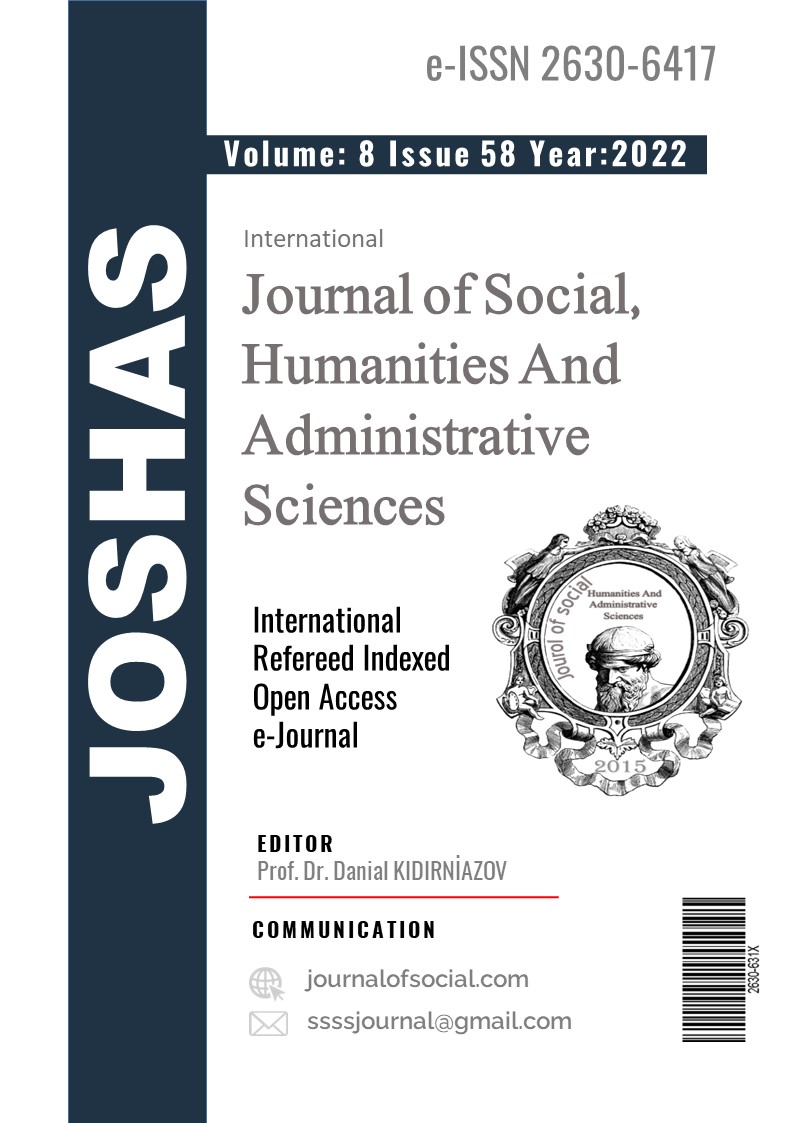Author :
Abstract
‘Aydınlanma’ kavramı, 18. yüzyıl Batı felsefesini tanımlamak amacıyla kullanılır, fakat söz konusu felsefe, tekdüze bir hareket olarak görülemez. Bu anlamda Fransız Aydınlanması, Alman Aydınlanması, İskoç Aydınlanması vb. nitelemeler farklı çağrışımlar yapmaktadır. Bu nedenle Aydınlanma'yı, tüm toplumlarda benzer şekilde yaşanmış bir süreç şeklinde değerlendirmemek lazım. Dolayısıyla Aydınlanma çağı filozofları birbirinden çok farklı fikirler ortaya koymuşlar ve böylece Aydınlanma felsefesinde farklı damarlar ortaya çıkmıştır. Böylece ulusların kendilerine has spesifik kültürel-siyasal şartları, özel dehaları benzer bir hareketi veya kurumu genel olarak farklılaştırma sonucuna yol açar. Ayrıca Batının sosyal, siyasal, felsefi ve ekonomik açılardan modern dönemlerde sağladığı düşünsel birikimin Aydınlanma Çağı’yla beraber daha anlamlı hale geldiği görülmüştür. Tekraren, Aydınlanma’nın Batı’da Anglosakson ve Kıta Avrupa’sı gelenekleri dâhilinde birçok açıdan benzer kaynaklardan beslendiği konusunda mutabakat olsa da algılanışı, ortaya konuşu ve uygulama açısından ele alınmasında bir takım farklılıklar taşıdığı ifade edilmektedir. Söz konusu farklılıklarla beraber, liberal değerlerin birey ve toplum için kullanılmasında ciddi düşünsel farklılıkların Aydınlanma etkisindeki toplumların tarihsel, sosyal, idari ve ekonomik şartlarından kaynaklandığı söylenebilir. Böylece çeşitli ülkelerde farklı türde ve içerikte Aydınlanma düşünce tarzlarının baskın hale geldiği ve zaman zaman da bazı konularda zıtlaşma gösterdiği anlaşılmaktadır. Ancak Aydınlanma düşüncesinin bu şekilde belli kalıplara sığdırılamayacak ölçüde çeşitlilik gösterdiğini de akılda tutmak lazım. Bu bilgiler ışığında bu çalışmada Fransız Aydınlanması ve diğer ülkelerdeki Aydınlanma türleri incelenmeye çalışılmıştır.
Keywords
Abstract
The concept of 'enlightenment' is used to describe 18th century Western philosophy, but the philosophy in question cannot be seen as a monotonous movement. In this sense, the terms like French Enlightenment, German Enlightenment, Scottish Enlightenment etc. have different connotations. For this reason, the Enlightenment should not be evaluated as a process experienced in a similar way in all societies. Therefore, the philosophers of the Enlightenment age put forward very different ideas from each other and thus different veins emerged in the philosophy of the Enlightenment. Thus, the specific cultural-political conditions of the nations, the particular geniuses, lead to the general differentiation of a similar movement or institution. In addition, it has been seen that the intellectual accumulation that the West has provided in modern times in terms of social, political, philosophical and economic aspects has become more meaningful with the Age of Enlightenment. Again, although it is agreed that the Enlightenment was fed from similar sources in many respects within the Anglo-Saxon and Continental European traditions in the West, it is stated that there are some differences in its perception, expression and practice. Along with these differences, it can be said that the serious intellectual differences in the use of liberal values for the individual and the society stem from the historical, social, administrative and economic conditions of the societies under the influence of the Enlightenment. Thus, it is understood that in the various countries, different types and content of Enlightenment thought styles became dominant and sometimes conflicted on some issues. However, it should be kept in mind that the thought of the Enlightenment showed such diversity that it could not fit into certain patterns. In the light of this information, in this study, the French Enlightenment and the Enlightenment types in other countries were tried to be examined.
Keywords
- 1. ARSLAN, A. (1992). “Aydınlanma”, Çağdaş Türkiye Tarihi Araştırmaları Dergisi, 1 (2), https://dergipark. org.tr/en/pub/atta/issue/25523/269197 (13.09.2022).
- 2. ATABAY, M. (2004). Aydınlanma Çağı ve Avrupa, Ankara: Nobel Yayın, 1. basım.
- 3. BAŞDEMİR, H. Y. (2005). “İskoç Aydınlanma Etiği: Hutcheson, Hume ve Smith”, Liberal Düşünce Dergisi, yıl:10, sayı:37, Kış, http://w3.gazi.edu.tr/web/basdemir/iskocetik.pdf (25.10.2011).
- 4. BRISTOW, W.F. (2022). Aydınlanma Felsefesi, (çev. İrem Şalvarcı), İstanbul: Beyoğlu Kitabevi, 1. baskı.
- 5. ÇELİK, F., Fidan, S. ve Şahin K. (2011). “Aydınlanma’nın Fransız Düşüncesi İçinde ‘Katı Liberal Değerler’ Bağlamında Ele Alınmasında Ansiklopedi ve Ansiklopedistlerin Yeri”, Akademik Bakış, sayı:23, s.1-19, http://www.akademikbakis.org/23/02.pdf (02.11.2011).
- 6. ÇİĞDEM, A. (2001). Aydınlanma Düşüncesi, İstanbul: İletişim Yayınları.
- 7. DUMAN, F. (2006). “Akılcılık Bağlamında İki Aydınlanma Geleneği: Fransız Aydınlanması versus İskoç Aydınlanması”, Ankara Üniversitesi SBF Dergisi, 61(1), s.118-151. http://dergiler.ankara.edu.tr/dergiler/42/444/4970.pdf (25.10.2011).
- 8. DURGUN, F. (2021). Modern Avrupa’nın Tarihini Yeniden Düşünmek(Aydınlanma’dan 19. Yüzyıl sonuna), İstanbul: Ketebe Yayınları, 1. baskı.
- 9. GÜMÜŞLÜ, B. (2008). “Aydınlanma ve Türkiye Cumhuriyeti”, Türkiyat Araştırmaları, Sayı 8, Bahar 2008, http://www.turuz.info/Turkoloji-Tarix/077-(08) Turkiyyat%20arashdirmalari.pdf#page=121 (10.10.2011).
- 10. KOÇ, A.K. (2018). “İngiliz ve Amerikan Devrimlerine Fransız Devrimi Üzerinden Bir Bakış”, Liberal Düşünce Dergisi, yıl: 23, sayı: 91-92, ss. 53-72.
- 11. KÖKTAŞ, M. (2011). “İskoç Aydınlanması ve Amerika”, Liberal Düşünce Dergisi, (63), 235-256.
- 12. KÖKTAŞ, M. (2014). “Amerikan Aydınlanması: Bir Giriş Denemesi”, Liberal Düşünce, yıl:19, sayı:73-74, s.109- 137.
- 13. RALSTON, S.J. (2020). “Amerikan Aydınlanması”, https://kualiafelsefedergisi.com/2020/10/amerikan- aydinlanmasi-shane-j-ralston/ (14.09.2022).
- 14. RUDÊ, G. (2018). Fransız Devrimi, İstanbul: İletişim Yayınları, 3. baskı.
- 15. SARICA, M. (1996). Siyasi Düşünce Tarihi, İstanbul: Gerçek Yayınevi.
- 16. SPARKS OF REASON, “The contribution of Dutch philosophy to the Enlightenment”, https://cordis.europa.eu/article/id/169617-the-contribution-of-dutch-philosophy-to-the-enlightenment (23.09.2022).
- 17. TAŞKIN, A. (2007). İskoç Aydınlanması, İstanbul: Birey Yayınları, 1. baskı.
- 18. TİMUÇİN, Afşar (2008). “Aydınlanma Nedir?”, https://bilimvegelecek.com.tr/wp- content/uploads/2018/02/Ayd%C4%B1nlanma-nedir.pdf (10.09.2022).
- 19. TİMUÇİN, Ali (2008). “Aydınlanmanın kaynakları ve özü”, https://bilimvegelecek.com.tr/wp-
- 20. WOOD, E.M.(2016). Özgürlük ve mülkiyet: Rönesans’tan Aydınlanma’ya Batı Siyasi Düşüncesinin Toplumsal Tarihi, (çev. Oya Köymen) 2. basım., İstanbul: Yordam Kitap.





